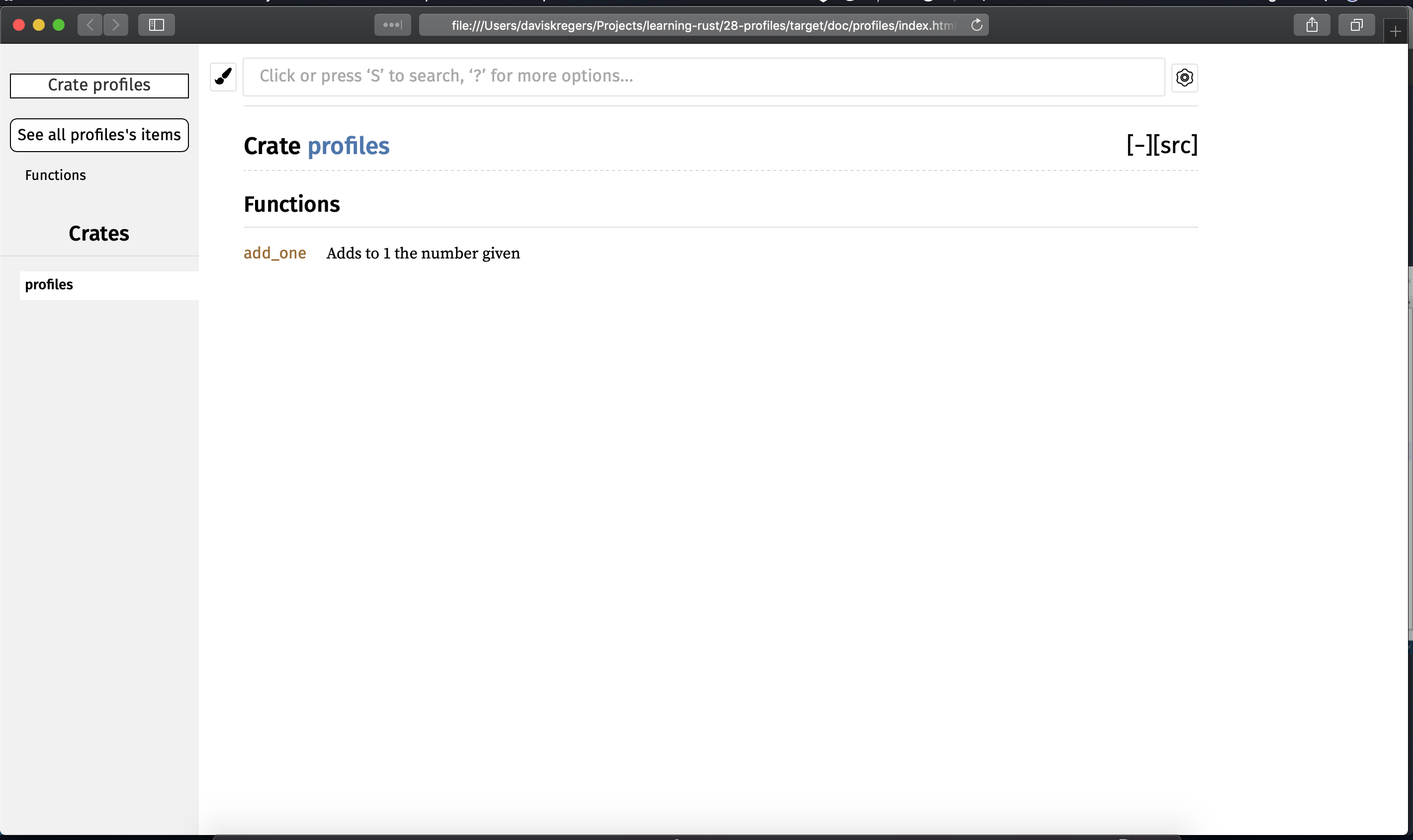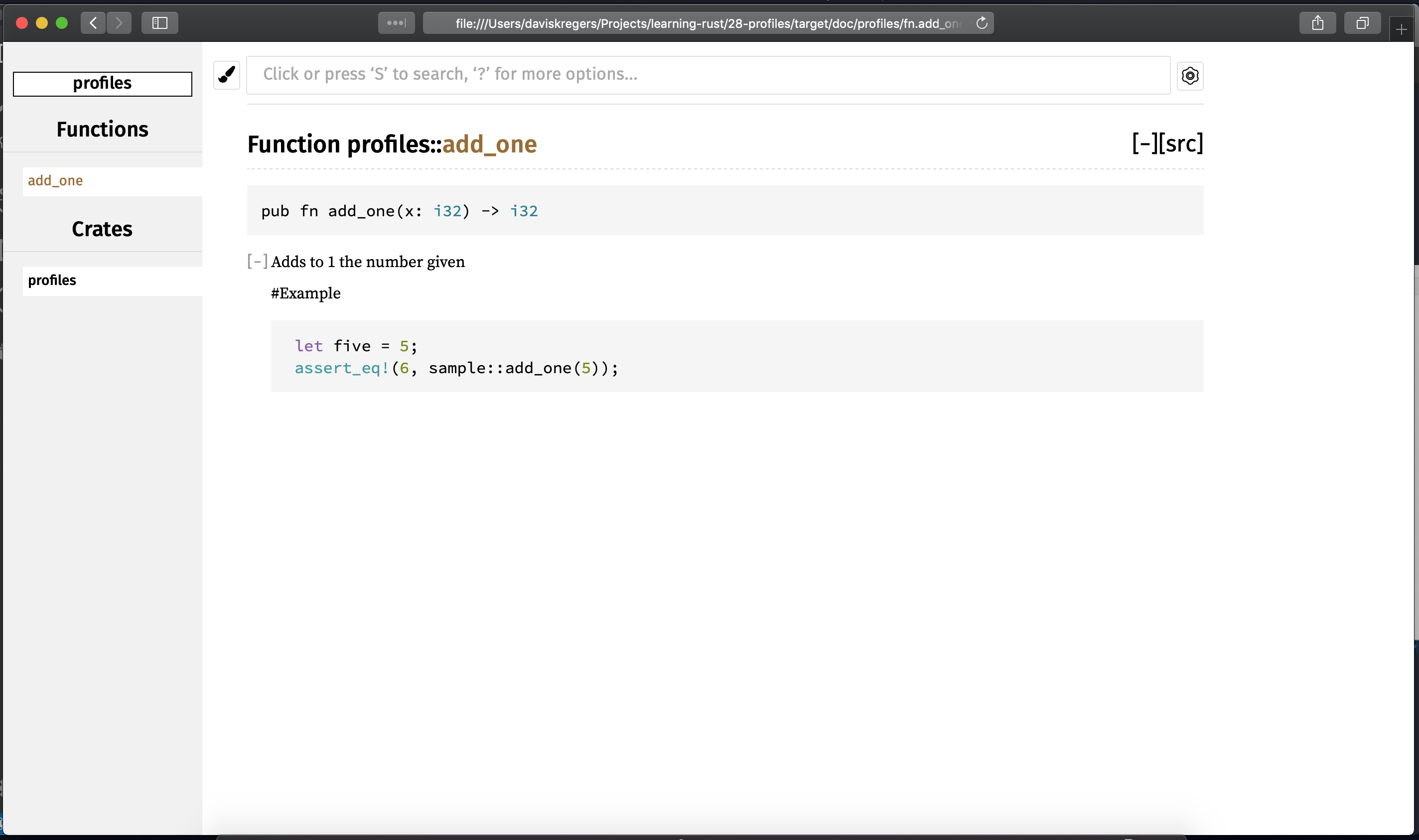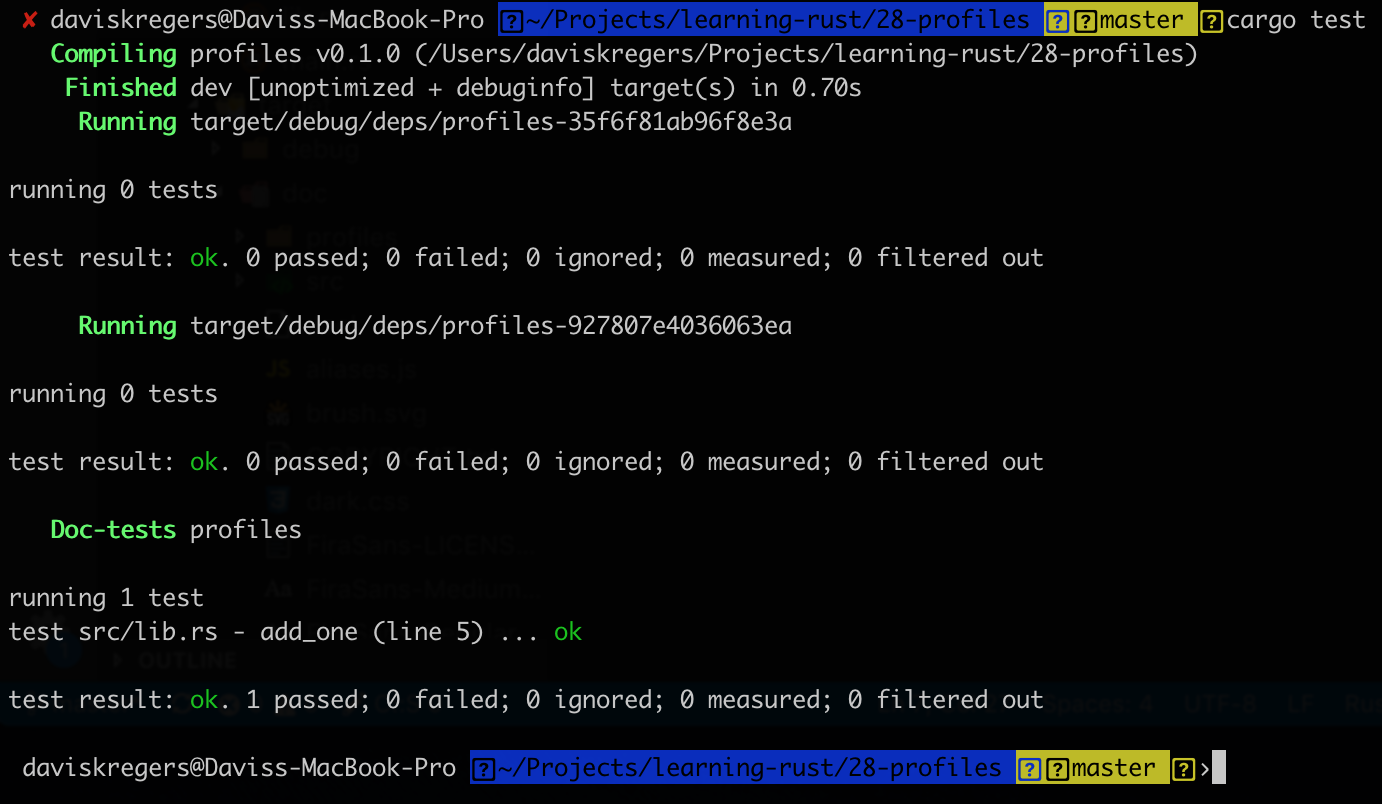Cargo and Crates.IO¶
Customizing builds with release profiles¶
There are two cargo profils, a build profile, that is used when we run cargo build and release profile when we run cargo build --release.
These profiles can be configured in the Cargo.toml file:
[profile.dev]
opt-level=0
[profile.release]
opt-level=3
The opt-level stands for optimization level that rust compiler applies on the build. It ranges from 0 to 3, the next level takes more time on the build time, but the run time will be faster.
daviskregers@Daviss-MacBook-Pro ~/Projects/learning-rust/28-profiles master cargo build
Compiling profiles v0.1.0 (/Users/daviskregers/Projects/learning-rust/28-profiles)
Finished dev [unoptimized + debuginfo] target(s) in 0.64s
daviskregers@Daviss-MacBook-Pro ~/Projects/learning-rust/28-profiles master cargo build --release
Compiling profiles v0.1.0 (/Users/daviskregers/Projects/learning-rust/28-profiles)
Finished release [optimized] target(s) in 0.31s
Making Documentation¶
You can document the code using markdown in a following manner:
///Adds to 1 the number given
///
///#Example
///
///```
/// let five = 5;
/// assert_eq!(6, profiles::add_one(5));
///```
pub fn add_one(x:i32) -> i32 {
x + 1
}
The documentation can be build using a command:
cargo doc
The documentation can be opened using
cargo doc --open


The Examples part is also running as a doctest:
cargo test

Publishing to Crate.IO¶
First, you need to create an account on https://crates.io/ and obtain an API key.
cargo login API_KEY
Now, you will need to modify the Cargo.toml file and add description and license:
description = "This is a description"
license = "MIT"
Now, you can publish it with
cargo publish
Cargo Workspaces¶
You can create a directory with a Cargo.toml file in it:
[workspace]
members=[
"adder",
"add-one"
]
cargo new adder
cargo new add-one --lib
in the adder/Cargo.toml:
[dependencies]
add-one={path="../add-one"}
In add-one/src/lib.rs:
pub fn add_one(num : i32) -> i32 {
num + 1
}
In adder/src/main.rs:
extern crate add_one;
fn main() {
let num = 10;
println!("{}", add_one::add_one(num));
}
cargo build
✘ daviskregers@Daviss-MacBook-Pro ~/Projects/learning-rust/28-workspaces master cargo build
Compiling add-one v0.1.0 (/Users/daviskregers/Projects/learning-rust/28-workspaces/add-one)
Compiling adder v0.1.0 (/Users/daviskregers/Projects/learning-rust/28-workspaces/adder)
Finished dev [unoptimized + debuginfo] target(s) in 0.67s
cargo run
daviskregers@Daviss-MacBook-Pro ~/Projects/learning-rust/28-workspaces master cargo run
Finished dev [unoptimized + debuginfo] target(s) in 0.05s
Running `target/debug/adder`
11
You can then add tests in the same manner before:
#[cfg(test)]
mod tests {
use super::*;
#[test]
fn it_works() {
assert_eq!(4, add_one(3));
assert_eq!(6, add_one(5));
}
}
cargo test
✘ daviskregers@Daviss-MacBook-Pro ~/Projects/learning-rust/28-workspaces master cargo test
Compiling add-one v0.1.0 (/Users/daviskregers/Projects/learning-rust/28-workspaces/add-one)
Compiling adder v0.1.0 (/Users/daviskregers/Projects/learning-rust/28-workspaces/adder)
Finished dev [unoptimized + debuginfo] target(s) in 0.74s
Running target/debug/deps/add_one-04932d8ef5f0255b
running 1 test
test tests::it_works ... ok
test result: ok. 1 passed; 0 failed; 0 ignored; 0 measured; 0 filtered out
Running target/debug/deps/adder-0285b0883f304ad9
running 0 tests
test result: ok. 0 passed; 0 failed; 0 ignored; 0 measured; 0 filtered out
Doc-tests add-one
running 0 tests
test result: ok. 0 passed; 0 failed; 0 ignored; 0 measured; 0 filtered out
Installing binaries from Cargo.IO¶
cargo install package